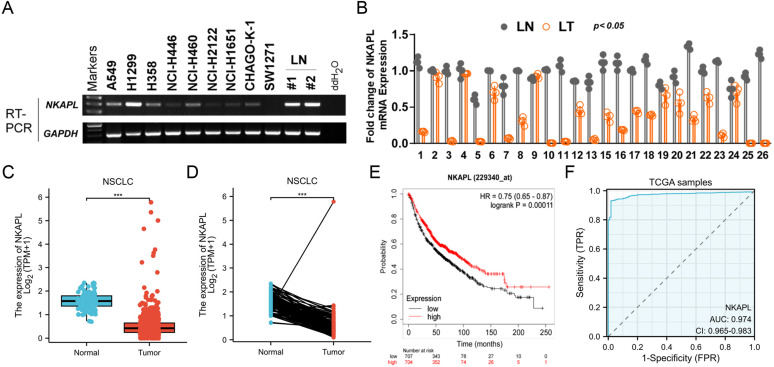
NKAPL suppresses NSCLC progression by enhancing the protein stability of TRIM21 and further inhibiting the NF-κB signaling pathway


Non-small cell lung cancer (NSCLC) remains a leading cause of mortality in the clinic. Previous studies have demonstrated that the NF-kappa-B activating protein like (NKAPL) is positively correlated with prognosis in several types of cancers. However, the role of NKAPL in the progression of NSCLC remains unclear. The expression and promoter methylation of NKAPL were examined by real-time PCR, quantitative PCR, and methylation-specific PCR. The functional impacts of NKAPL on NSCLC proliferation were explored by CCK8 assay and colony formation assay. Transwell assay was conducted to investigate the role of NKAPL in NSCLC cell migration and invasion, and the influence on metastasis was verified in vivo. Flow cytometry was exploited to analyze the influence on the cell cycle and apoptosis. The regulatory mechanism of NKAPL was investigated by immunoprecipitation-mass spectrometry, western blotting, immunofluorescence, and immunohistochemistry. NKAPL was down-regulated due to promoter methylation, which was associated with poor prognosis in NSCLC patients, while the up-regulation of NKAPL suppressed NSCLC cell proliferation and metastasis both in vitro and in vivo. Mechanistically, the NF-κB signaling pathway was inhibited because the up-regulation of NKAPL increased the stability and expression of TRIM21. NKAPL suppressed NSCLC cell proliferation and metastasis both in vitro and in vivo by increasing the stability and expression of TRIM21 and subsequently inhibiting the NF-κB signaling pathway.
